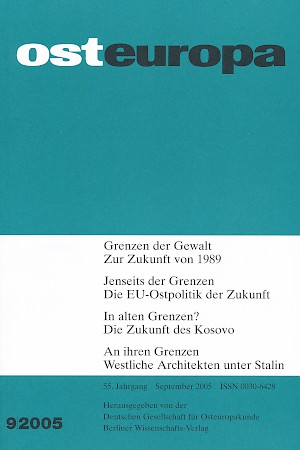Memorandum on the State of Slavic Studies in Germany
Herta Schmid, Katrin Berwanger
Deutsche Fassung
Abstract
The list of Polish, Czech, and Russian Nobel laureates for literature, Slavic painters, composers, and directors, the achievements in philosophy, logic, rhetoric, theology, modern linguistics, aesthetics, and literature theory is long. Names such as Comenius, Bolzano, Dvořák, Kandinskii, Wajda, Stanislavskii, Rimskii-Korsakov, Szymborska, Mrożek, Čapek, and Havel are known around the world. But who in Germany can truly appreciate their contributions to European culture? Given the centuries of close interaction between German and Slavic cultures in art, literature, business and commerce, political thought, and religion, it is time German institutes of higher learning also overcome the disastrous division of Europe that followed the Second World War. Slavic cultures constitute a part of European culture and learning that is just as important as Western culture. They can no longer be marginalised.
(Osteuropa 9/2005, pp. 122–167)



